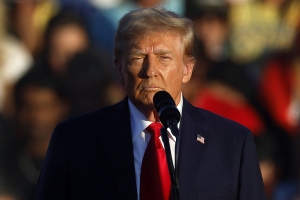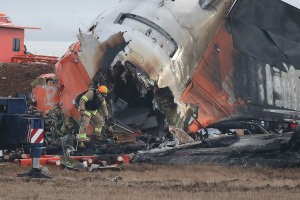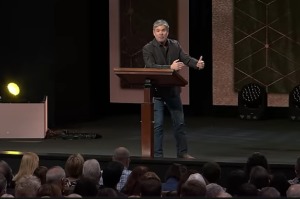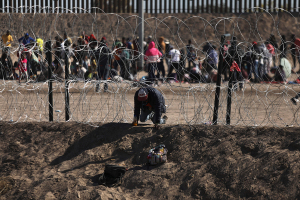Global Church Body Moves Ecumenical Journey Forward
The World Council of Churches (WCC) closed a weeklong conference in Geneva on Wednesday with a commitment to make progress on the ecumenical movement and released several public statements on key global issues.
"This meeting allowed us to foster the programs of the Council and, in a number of respects, move forward our ecumenical journey as churches, with the aim of calling one another to visible unity," said the Rev. Dr. Walter Altmann, moderator of the WCC central committee.
The central committee met Feb. 13-20 addressing challenges facing the church, including climate change, HIV/AIDS, and the Kenya crisis as well as WCC's contribution to the ecumenical movement. The world body represents more than 560 million Christians in some 110 countries.
Among seven public issues statements adopted by the central committee, one called for immediate action on the environmental issue, urging churches to strengthen their moral stand on the issue and to be stewards of God's creation.
"As climate change effects are 'being experienced already in many parts of the world,' it affirms that 'action must be taken now.' Churches 'can take key leadership roles,'" said the statement.
Climate change campaigns have recently gained momentum among Christian organizations and churches that say caring for the environment is a Christian issue. But not all Christians have hopped on board to make climate change a priority among other issues such as abortion.
Addressing the post-election violence in Kenya, several speakers in Geneva condemned the violence and emphasized the important role the church plays in bringing peace and stability to Kenya. Since the contentious Dec. 27 election, more than 1,000 people have died and a half a million more have been displaced.
"We believe that for Kenya and Africa, church unity and ecumenical cooperation is not just an optional alternative," said Rev. Dr. Mvume Dandala, general secretary of the All Africa Conference of Churches, which is based in the Kenyan capital of Nairobi. "Sometimes the churches have to work hard if they are to be relevant."
In its public statement regarding the crisis Kenya, the WCC central committee said it "recognizes that many Kenyan churches were affected by partisanship, but 'affirms church leaders and members who became advocates for peace.'"
During the meeting, several speakers pointed out the challenge of finding consensus on the words and specific scriptural grounding of public statements by the global council. They stressed the need to ground statements in Scripture.
"The church must not act like another NGO," said the Rev. Kjell Magne Bondevik, moderator of WCC's Commission of the Churches on International Affairs. "We have value when we make public statements as a church, but we must always try to root our statements in these (Christian) values."
"We try to remember our biblical and theological mandate, to stand with those who are victims of oppression or poverty or violence [from] our understanding of where our individual faith traditions might say we should be, but more importantly where Jesus said we should be," said the Rev. Elenora Giddings Ivory, who works closely with the central committee's Public Issues Committee.
Attendants of the gathering also discussed ways to expand its circle to bring in more ecumenical partners and other voices into one event or a series of events for a more cohesive ecumenical voice. WCC represents just over 25 percent of the world's Christians, according to WCC program executive Doug Chial.
The WCC executive committee recommended to the central committee that an Assembly Discernment Committee be formed to move the conversation and thinking forward on a possible broader WCC assembly.
Some attendants, however, offered caution when taking such a step. Although they want the ecumenical cause to move forward, many do not want to see a loss of WCC identity and methodology.
"This is a very serious subject," said His Holiness Abune Paulos of the Ethiopian Orthodox Tewahedo Church, one of the WCC presidents. "I think we need more time to study it."
At the close of the conference, the WCC announced it has begun searching for a new leader after the body's current head, the Rev. Dr. Samuel Kobia, announced he will not seek a second term. Kobia, who took office in January 2004, cited personal reasons for not seeking to extend his leadership as general secretary.
An acting general secretary will be appointed by the WCC executive committee at its meeting in September 2008 and a new head is schedule to be elected at the central committee meeting in September 2009.





























